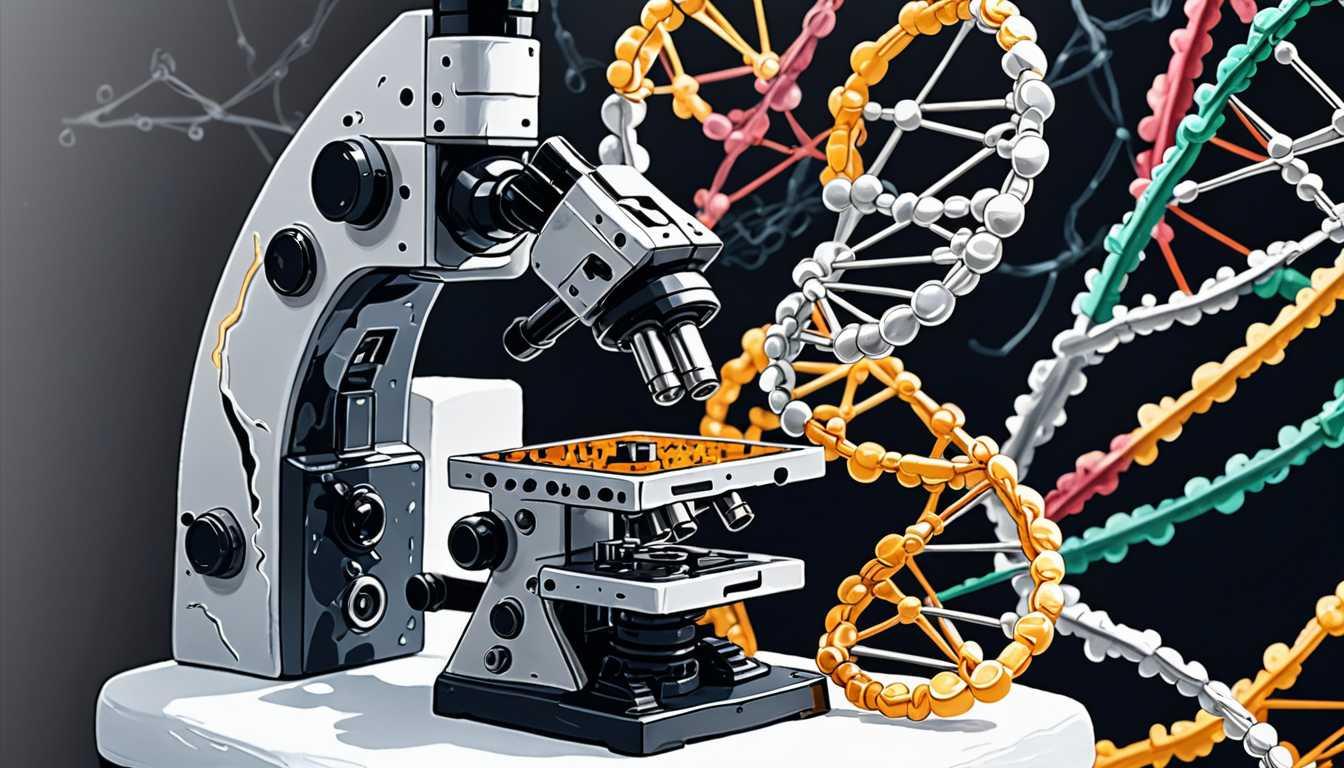Genetic Mysteries of Lupus Explained!
May 2024
UC Berkeley
Introduction
Ever wondered what makes your immune system tick? Dive into "Tracking Down the Genetic Causes of Lupus to Personalize Treatment" from CellImage! This article uncovers the mysteries behind lupus, a sneaky disease that can turn your body against itself. With cutting-edge research and a sprinkle of humor, you'll learn how scientists are personalizing treatments just for you! So grab your curiosity and get ready to explore this fascinating world of genetics!
READ FULL ARTICLEWhy It Matters
Discover how this topic shapes your world and future
Unraveling the Mystery of Lupus
Lupus is a complex autoimmune disease that affects many people worldwide, causing chronic pain and other severe symptoms. Understanding lupus is crucial because it highlights the importance of personalized medicine—tailoring treatments to individual genetic profiles rather than using a one-size-fits-all approach. In recent years, researchers have discovered that specific genetic mutations correlate with different types of lupus, allowing for targeted therapies that could substantially improve patients' quality of life. This is especially relevant for you as young individuals, since lupus typically starts during the teen years, and increased awareness can help in early diagnosis and treatment. The exciting progress in lupus research not only has implications for those affected but also sheds light on broader topics in genetics, immunology, and personalized healthcare that can impact future medical advancements globally.
Speak like a Scholar
Autoimmune Disease
A condition where the immune system mistakenly attacks the body’s own healthy cells, thinking they are foreign invaders.
Genetic Mutation
A change in the DNA sequence that can lead to different traits or diseases, such as lupus.
Toll-like Receptors (TLRs)
Proteins on immune cells that help detect pathogens like viruses and bacteria, but can sometimes mistakenly activate against the body’s own cells.
Personalized Medicine
Tailoring medical treatment to the individual characteristics of each patient, often based on their genetic information.
Chronic Inflammation
A prolonged and persistent inflammatory response in the body that can lead to tissue damage and various diseases, including autoimmune disorders.
Clinical Trials
Research studies that test new treatments on patients to determine their safety and effectiveness before they can be widely used.
Independent Research Ideas
The Role of Genetics in Autoimmune Diseases
Investigate how specific genetic mutations influence the development of diseases like lupus and their implications for treatment. This could reveal fascinating insights about the intersection of genetics and health.
Comparative Study of TLR Function in Different Autoimmune Diseases
Examine how toll-like receptors behave differently in lupus versus other autoimmune diseases. This research would provide a broader understanding of immune system regulation.
Impact of Gender on Lupus Prevalence
Explore why lupus is more common in women than men, considering biological and social factors. This topic could lead to intriguing discussions about gender and health.
Emerging Therapies for Autoimmune Diseases
Research the latest clinical trials for lupus treatments and evaluate their potential effectiveness. This could provide a glimpse into the future of medicine.
The Psychological Effects of Living with Chronic Illness
Study how chronic diseases like lupus affect mental health and resilience in young people. This research could highlight the importance of emotional support and coping strategies.
Related Articles

Eye Protein: A Potential AMD Game Changer
June 2024
University of Bristol

Genetic Wonders: Siblings Spark Diabetes Breakthrough
May 2024
King's College London - News

Gene Mutations: Unraveling Cellular Secrets
May 2024
Cornell News Highlights

Fiber: Your Gut’s Best Defense Against Germs
January 2025
U of Cambridge Research

Smells: The Surprising Protectors Against Infections
August 2024
UC Berkeley